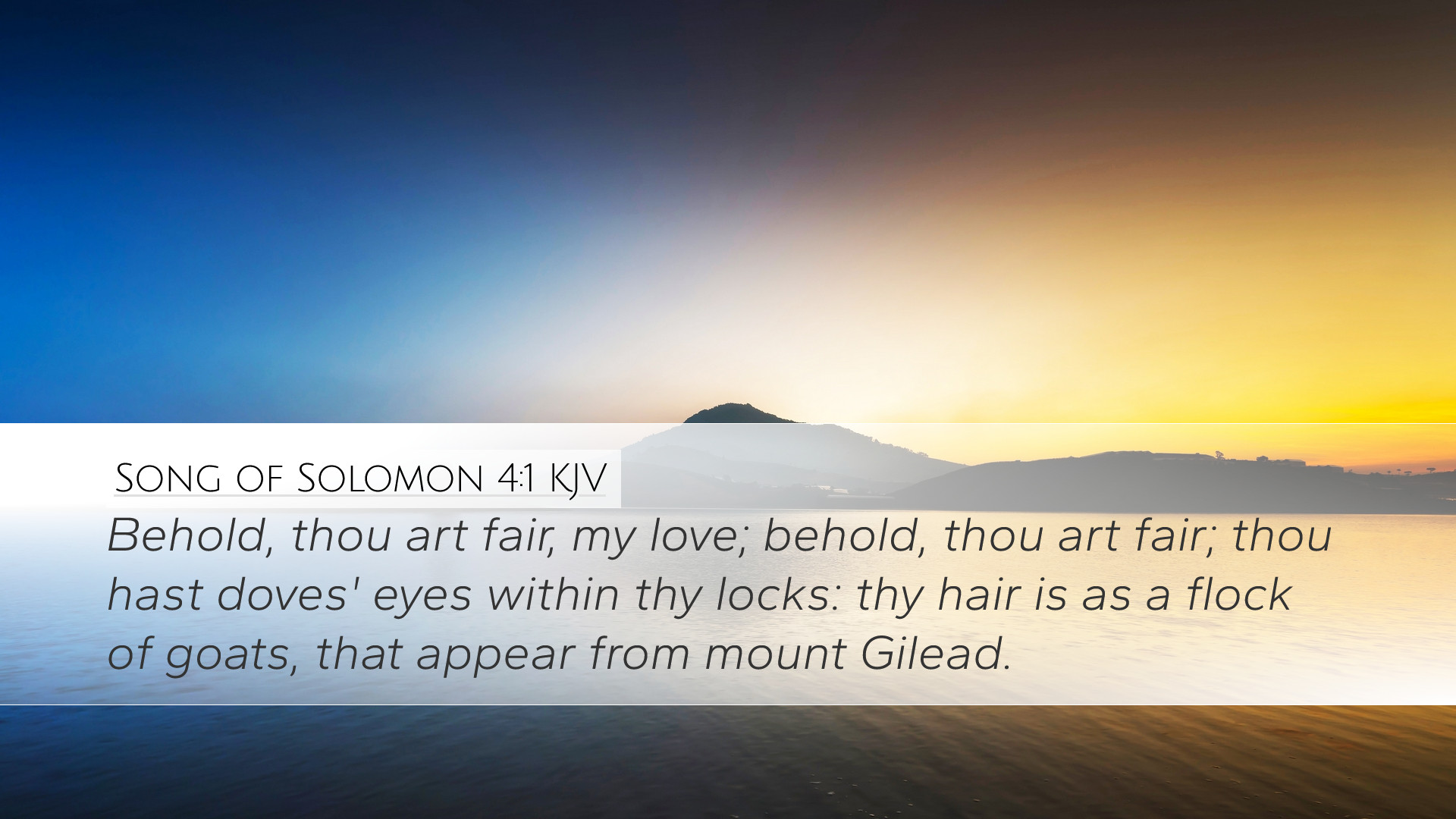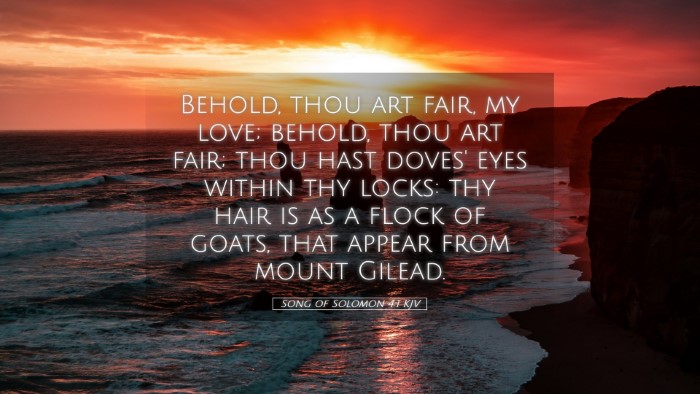Commentary on Song of Solomon 4:1
Song of Solomon 4:1 states:
"Behold, thou art fair, my love; behold, thou art fair; thou hast doves' eyes within thy locks: thy hair is as a flock of goats that appear from mount Gilead."
Introduction
The Song of Solomon, traditionally attributed to King Solomon, presents an allegorical and lyrical reflection on love, beauty, and longing. This particular verse serves as a beautiful proclamation of admiration, focusing on the beloved's physical and spiritual attributes. Public domain commentaries shed light on the interpretive layers of this poetic text.
Physical Beauty and Symbolism
In this verse, the speaker begins with a heartfelt proclamation of beauty, repeating the phrase "thou art fair." Such repetition emphasizes not only the physical beauty but also elevates the beloved in the speaker's eyes.
Matthew Henry highlights that beauty is a gift from God, and here, Solomon acknowledges the divine craftsmanship in his beloved. This beauty is articulated through rich metaphorical imagery:
- Doves' Eyes: The mention of "doves' eyes" is significant, denoting innocence and purity. It suggests that the beloved possesses a serene and gentle spirit.
- Flock of Goats: Hair being compared to a "flock of goats" descending from Mount Gilead points to robustness and health. Goats known for their glossy hair symbolize vitality and natural beauty.
Spiritual Interpretation
Beyond the physical, scholars like Adam Clarke urge consideration of a spiritual interpretation. The imagery reflects the Church's beauty in Christ's love, representing ideal sanctity and devotion.
In particular, the doves’ eyes can signify a pure and devoted heart, capturing the essence of how believers should aspire to focus their gaze upon the divine, free from distractions.
Contextual Analysis
Albert Barnes comments on the context of this verse within the Song of Solomon's broader themes. The songs progress through a metaphorical representation of love, maturity in relationships, and an evolving understanding of intimacy.
Understanding the social and historical context helps illuminate why beauty is celebrated so intensely in this passage. It speaks to the Israelite culture where love, marriage, and beauty were regarded as divine blessings.
Application for Today
This passage provides meaningful applications for modern readers, especially for those engaged in pastoral activities:
- Celebration of God's Creation: Pastors can encourage congregants to appreciate God’s handiwork in each individual, fostering self-worth.
- Loving Relationships: Scholars and theologians may draw insights from the text on nurturing and cherishing relationships, emphasizing the need for appreciation and admiration.
- Pursuit of Purity: The comparison of physical attributes invites discussions around the spiritual aspects of purity and focus, relevant for discipleship and spiritual growth.
Conclusion
In conclusion, Song of Solomon 4:1 encapsulates the profound beauty of love as both a physical and a spiritual reflection of God's creation. The verse invites readers to view beauty through the lenses of admiration, gratitude, and holiness, marking a foundation for relationships characterized by respect and commitment.
As such, the insights drawn from historical commentaries provide a rich tapestry of understanding, presenting a holistic view of love that is as applicable today as it was in ancient times.


